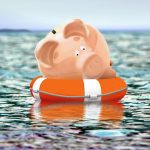
Achieving financial freedom is a goal that many of us aspire to, yet it feels elusive to the majority. It’s a journey that doesn’t just start and end with having ample savings or investments; it’s a comprehensive lifestyle change that begins in the mind. Financial freedom means having enough savings, investments, and cash on hand to afford the lifestyle we desire for ourselves and our families, enabling a life without financial stress and constraints. It offers the freedom to choose how we spend our time, whether that involves working, traveling, or pursuing passions. We must cultivate specific mental habits that align with our financial goals to embark on this transformative journey.
The Pillars of Financial Freedom
Before delving into the mental habits essential for achieving financial freedom, it’s vital to understand its pillars: saving diligently, investing wisely, spending mindfully, and earning strategically. These pillars are the foundation upon which financial freedom is built, yet their effectiveness is significantly amplified by the right mindset.
Habit 1: Clarity of Purpose
Understanding the true essence of financial freedom is the cornerstone of your financial journey. It’s not just about amassing wealth but defining what financial freedom means on a personal level. Why do you seek financial freedom? Is it to have the liberty to pursue your passions, provide for your family without stress, or maybe to travel the world? This vision of your future life should be the guiding star for all your financial decisions. Keeping this vision in focus requires regular reflection and visualization, ensuring that every financial choice you make aligns with your ultimate goals. This clear sense of direction not only keeps you motivated but also makes the path towards financial independence more meaningful and fulfilling.
Habit 2: Financial Patience and Perseverance
The path to financial independence is often long and filled with obstacles. Recognizing that wealth accumulation is a gradual process is crucial. This understanding fosters patience, enabling you to stick to your financial plan even when progress seems slow. Perseverance becomes particularly important in the face of financial setbacks. Whether it’s an unexpected expense, a market downturn, or a personal financial mistake, the ability to persevere—learning from each experience and refining your approach—ensures you remain steadfast on your path to financial freedom.
Habit 3: Lifelong Learning
The financial world is dynamic, with new opportunities and challenges emerging constantly. Embracing a mindset of lifelong learning is essential to navigate this ever-changing landscape effectively. This means staying informed about the latest financial strategies, investment options, and economic trends. Continuous education allows you to make informed decisions, adapt your financial plan as necessary, and seize opportunities that align with your goals. Engaging with financial literature, attending workshops, and even following reputable financial advice online can all contribute to a well-rounded financial education.
Habit 4: Mindful Spending
One of the most tangible habits towards achieving financial freedom is the practice of mindful spending. This involves scrutinizing each expense to determine whether it brings you closer to your financial goals. Mindful spending is about intentionality—choosing to spend on things that add genuine value to your life and cutting back on unnecessary expenses. It’s a balance between living a fulfilling life now while ensuring future financial security. Developing a budget that reflects your values and financial objectives can help guide your spending decisions, ensuring that your money is being used effectively to support your journey to financial freedom.
Habit 5: Resilience in the Face of Financial Challenges
No journey is without its setbacks, and the quest for financial freedom is no exception. Financial challenges, whether they are personal, economic, or market-driven, are inevitable. Developing resilience is key to navigating these challenges successfully. Resilience in this context means more than just bouncing back from setbacks; it’s about using these experiences as learning opportunities to strengthen your financial strategies and adapt your plans. Cultivating a support network, whether through family, friends, or financial advisors, can also provide additional perspectives and emotional support, making it easier to overcome obstacles and stay focused on your long-term goals.
Integrating Habits into Daily Life
Understanding these habits is one thing; integrating them into your daily life is another. It starts with small, consistent actions. Regularly review your financial goals, educate yourself on financial matters, scrutinize your spending, and adopt a positive mindset towards challenges. Celebrate small victories along the way to keep motivated.
The Impact of Community and Support
The journey to financial freedom doesn’t have to be a solitary one. Engaging with a community of like-minded individuals can provide support, inspiration, and valuable insights. Sharing experiences and learning from others can enrich your journey and offer new perspectives on achieving financial autonomy.

Conclusion: A Journey of a Thousand Miles Begins with a Single Step
Achieving financial freedom is a journey that begins with a single step, and that step is a shift in mindset. By cultivating these essential mental habits, you’re not just preparing for a life of financial abundance; you’re also embarking on a path of personal growth and fulfillment. Financial freedom is within reach for those who are prepared to commit to these principles and integrate them into their daily lives.
Remember, financial freedom is not just about reaching a destination; it’s about the journey and the transformation that occurs within you along the way. Embrace these habits, and watch as they pave the way to a life of freedom, prosperity, and happiness.
FAQs
What does financial freedom mean?
Financial freedom means having enough savings, investments, and cash to afford the lifestyle you desire without being constrained by financial obligations or the need to work a traditional job. It’s about gaining the autonomy to make life choices without financial stress, enabling you to enjoy life, pursue your passions, and spend your time as you wish.
What are the 5 pillars of financial freedom?
The 5 pillars of financial freedom are:
- Saving: Building a habit of setting aside a portion of your income regularly.
- Investing: Utilizing your savings to create wealth over time through investments in stocks, bonds, real estate, or other vehicles.
- Earning: Increasing your income through career advancement, side hustles, or entrepreneurship.
- Spending: Practicing mindful spending to ensure your expenses align with your values and financial goals.
- Protection: Safeguarding your financial future through insurance and an emergency fund to handle unexpected events.
What is the 4% rule for financial freedom?
The 4% rule is a guideline for retirement spending, suggesting that you can withdraw 4% of your retirement savings annually without significantly depleting your nest egg over a 30-year retirement period. This rule is based on historical data and is used to estimate the size of the retirement fund you need to achieve financial freedom.
How can I be financially free at 30?
Achieving financial freedom by 30 requires early and aggressive financial planning, including:
- Maximizing your income through career growth or additional income streams.
- Living below your means to save a significant portion of your income.
- Investing wisely to grow your wealth through compounding returns.
- Avoiding debt or managing existing debt efficiently to reduce financial burdens.
- Learning continuously about personal finance to make informed decisions.
How can I become more financially literate in Canada?
To improve your financial literacy in Canada, consider these steps:
- Use Government Resources: Check out the Financial Consumer Agency of Canada (FCAC) for tools and educational materials.
- Read Books: Look for books on personal finance by Canadian authors.
- Take Online Courses: Explore free or low-cost courses on personal finance.
- Attend Workshops: Join financial literacy workshops and seminars in your community.
- Consult a Financial Advisor: For personalized advice, see a financial advisor.
- Join Groups: Participate in online groups or forums on personal finance in Canada.
- Follow Blogs and Podcasts: Stay updated with Canadian financial blogs and podcasts.
These steps can help you manage your money wisely and make informed financial decisions.
Additional Resources
- Mint: A free, all-in-one budgeting app that aggregates financial accounts for expense tracking and savings goal setting.
- PocketGuard: Assists in avoiding overspending by monitoring income, and expenses, and identifying saving opportunities.
- You Need A Budget (YNAB): Focuses on proactive budgeting, offering resources for users to get hands-on with their finances.
- Tiller Money: Offers automated budgeting in Google Sheets or Excel with customizable templates and real-time financial data syncing. It’s subscription-based.
- Personal Capital: Provides wealth management features, including investment tracking and retirement planning, along with a free budgeting dashboard.
- EveryDollar: Offers a straightforward budgeting app experience with features for customized budget categories, savings goals, and bill payment tracking. The premium version adds enhanced financial management tools.
- Life And My Finances: Provides a variety of free and paid spreadsheet tools for debt management using methods like the debt snowball or avalanche. They also offer free budgeting tools and debt payoff calculators.
Each of these platforms provides unique features to cater to different financial management needs, from simple budget tracking and expense management to comprehensive planning and investment advice.
Related Topics
Explore more insightful topics that could enhance your journey toward financial independence and a fulfilling lifestyle:
- Van Life: Embracing Nomadic Living: Discover the allure of van life, a lifestyle choice that combines adventure, simplicity, and financial savvy. Learn how transforming a van into a mobile home can offer freedom to explore while maintaining a minimalist and cost-effective lifestyle.
- Geo-Arbitrage Cities: Maximizing Your Money: Geo-arbitrage involves relocating to take advantage of lower living costs without compromising on quality of life. This guide explores cities around the world where you can stretch your dollar further, allowing you to save more while enjoying a high standard of living.
- Velocity Banking: Accelerating Mortgage Repayment: Velocity banking is a strategy aimed at rapidly reducing mortgage debt through the use of a home equity line of credit (HELOC). Learn how this method can help you pay off your mortgage faster, save on interest, and build equity in your home more efficiently.
Each of these topics offers unique insights into living a financially savvy lifestyle while pursuing personal and financial freedom. Whether you’re interested in reducing living expenses, optimizing your income, or accelerating debt repayment, these resources provide valuable strategies to consider.






Attractive section of content. I just stumbled upon your blog and in accession capital to assert that I get actually enjoyed account your blog posts. Anyway I will be subscribing to your augment and even I achievement you access consistently fast.